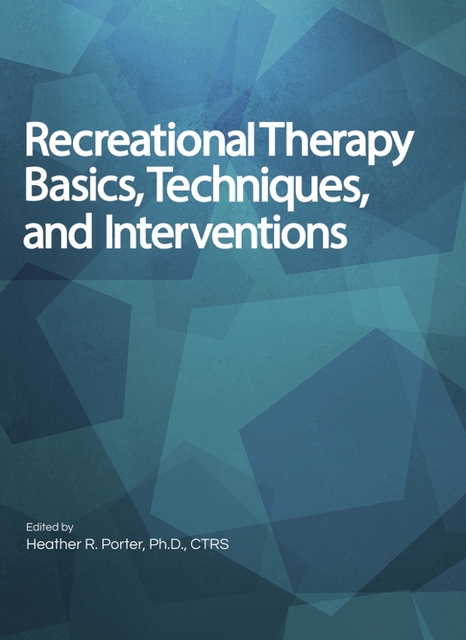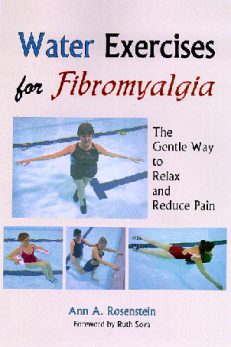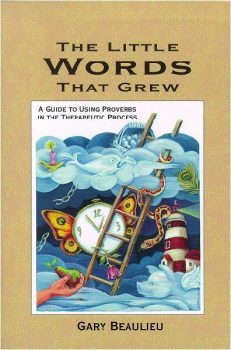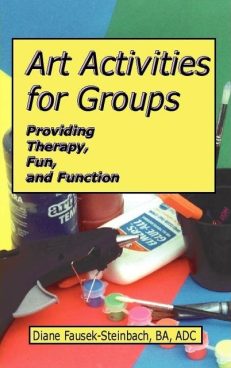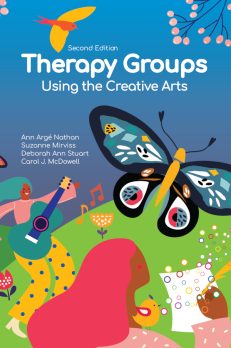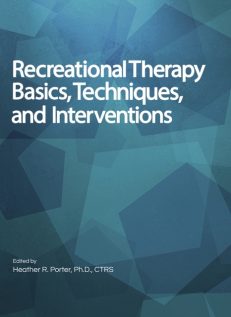Description
Recreational Therapy Basics, Techniques, and Interventions contains 51 chapters about recreational therapy practice. The book provides a concise guide to evidence-based practice for each treatment, explains how to accurately connect recreational therapy treatment with the client’s diagnosis to improve reimbursement for therapy, and suggest ways to standardized practice using the World Health Organization’s International Classification of Functioning, Disability, and Health (ICF).
Ten chapters describe the basics including topics such as activity and task analysis, body mechanics, consequences of inactivity, and effects of stress. There are 41 chapters with in-depth descriptions of techniques and interventions used by recreational therapists. These include adaptive sports, behavior strategies, disability rights education, medical play, social skills training, walking and gait training, and wheelchair mobility.
Thirty experts in recreational therapy and related disciplines offer the latest information about basics, techniques, and interventions that are used by recreational therapists. Each treatment chapter contains a detailed description of the topic, including:
* Indications
* Contraindications
* Protocol
* Process
* Outcomes
* Documentation
* Further resources for therapists, clients, and families
Heather Porter, Ph.D., CTRS, is a faculty member in the Rehabilitation Sciences Department at Temple University in Philadelphia, PA. She has a dual BS in Recreational Therapy and Sport/Recreation Management, an MS in Counseling Psychology with a Certificate in Marriage and Family Counseling, and a Ph.D. in Health Studies (Recreational Therapy and Public Health). She has a strong clinical background in inpatient and outpatient physical rehabilitation and has been teaching recreational therapy in higher education for over 18 years. She is committed to strengthening recreational therapy research and disseminating research information to practitioners, consumers, payers, legislators, and the general public. Most notably, she coordinates an annual Recreational Therapy Evidence-Based Practice Conference and maintains an open-access database for recreational therapy research and resources that has been utilized by over 60 countries (www.rtwiseowls.com). Dr. Porter also provides consultations to recreational therapy academic programs on how to integrate evidence-based research into academic coursework, and is recognized as a leader in the community seeking to integrate the World Health Organization’s International Classification of Functioning, Disability, and Health into healthcare practice.
Contents
I. Therapy Basics
1. Activity and Task Analysis
2. Adjustment and Response to Disability
3. Body Mechanics and Ergonomics
4. Consequences of Inactivity
5. Education and Counseling
6. Parameters and Precautions
7. Participation
8. Psychoneuroimmunology
9. Stress
10. Theories
II. Techniques and Interventions
11. Activity Pattern Development
12. Adaptive Sports
13. Adventure Therapy
14. Anger Management
15. Animal Assisted Therapy
16. Aquatic Therapy
17. Assertiveness Training
18. Balance Training
19. Behavior Strategies and Interventions
20. Bibliotherapy
21. Cognitive Behavioral Counseling
22. Cognitive Retraining and Rehabilitation
23. Community Participation: Transition, Inclusion, Integration, and Reintegration
24. Community Problem Solving
25. Constraint Induced Movement Therapy
26. Disability Rights Education and Advocacy
27. Energy Conservation Techniques
28. Errorless Learning
29. Group Psychotherapy Techniques
30. Leisure-Based Stress Coping
31. Leisure Education and Counseling
32. Leisure Resource Awareness
33. Life Review
34. Medical Play and Preparation
35. Mind-Body Interventions
36. Montessori Method
37. Motor Learning and Training Strategies
38. Neuro-Developmental Training
39. Physical Activity
40. Reality Orientation
41. Reminiscence
42. Sensory Interventions
43. Sexual Well-Being
44. Social Skills Training
45. Stress Management and Coping
46. Therapeutic Relationships
47. Therapeutic Thematic Arts Programming (TTAP Method(R))
48. Transfers
49. Values Clarification
50. Walking and Gait Training
51. Wheelchair Mobility
Contributors
Robert M. Beland, Ph.D.
Genee Bower, B.S., CTRS
Mary Bowman, OTR/L
Ellen Broach, Ed.D., CTRS, ATRIC
Cynthia Carruthers, Ph.D., CTRS
Kathryn D. Elokdah, Ed.M., CTRS, ATP
Daniel D. Ferguson, Ph.D., CTRS
Diane Groff, Ed.D., LRT/CTRS
Elaine Hatala, Ph.D., CTRS
Colleen Deyell Hood, Ph.D., CTRS
Susan Hutchinson, Ph.D.
Glenn A. Kastrinos, M.Ed., CTRS/LRT
Kari Kensinger, Ph.D., CTRS, CAS
Yongho Lee, Ph.D., CTRS
Linda Levine-Madori, Ph.D., ATR-BC, CTRS, LCAT
Donna L. Long, M.Ed., CTRS
Terry Dean Long, Jr., Ph.D.
Neil Lundberg, Ph.D., TRS, CTRS
Alexis McKenney, Ed.D., CTRS
Erin K. Moore, M.Ed., CTRS
David M. Morris, Ph.D., PT
Heather R. Porter, Ph.D., CTRS
Katelynn Ropars, M.S., CTRS
Arlene A. Schmid, Ph.D., OTR
Jennifer L. Sciolla, M.S., CTRS, CCLS
Edward Taub, Ph.D.
Marieke Van Puymbroeck, Ph.D., CTRS
Gena Bell Vargas, Ph.D., CTRS
Elizabeth H. Weybright, Ph.D., CTRS
J. Randal Wyble, M.S., CTRS
Heather Porter, Ph.D., CTRS, is a faculty member in the Rehabilitation Sciences Department at Temple University in Philadelphia, PA. She has a dual BS in Recreational Therapy and Sport/Recreation Management, an MS in Counseling Psychology with a Certificate in Marriage and Family Counseling, and a Ph.D. in Health Studies (Recreational Therapy and Public Health). She has a strong clinical background in inpatient and outpatient physical rehabilitation and has been teaching recreational therapy in higher education for over 18 years. She is committed to strengthening recreational therapy research and disseminating research information to practitioners, consumers, payers, legislators, and the general public. Most notably, she coordinates an annual Recreational Therapy Evidence-Based Practice Conference and maintains an open-access database for recreational therapy research and resources that has been utilized by over 60 countries (www.rtwiseowls.com). Dr. Porter also provides consultations to recreational therapy academic programs on how to integrate evidence-based research into academic coursework, and is recognized as a leader in the community seeking to integrate the World Health Organization’s International Classification of Functioning, Disability, and Health into healthcare practice.

